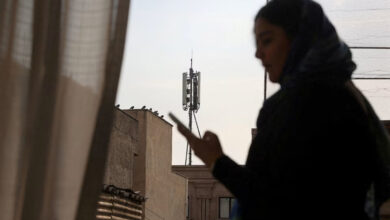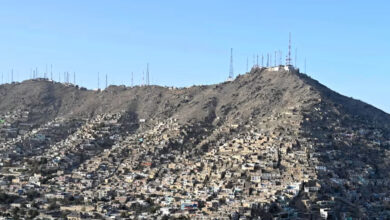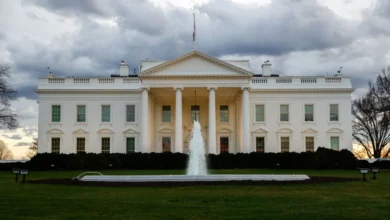
Since the 1952 revolution that overthrew the monarchy, the Egyptian education system has been an extension of the government. So said US newspaper The Washington Post in an article on Saturday.
School textbooks and curricula have always been biased towards the government, omitting and tweaking facts, “But now, the politicization of schools has reached a new level, with events and [political] opposition wiped from history,” said the Washington Post.
The article looked at one such omission from a fifth-grade primary school textbook, where the name of former Vice President Mohamed al-Baradei was left off the list of Nobel Prize winners. Baradei won the prize in 2005, whilst head of the International Atomic Energy Agency, but on page five of this core curriculum textbook, he was nowhere to be seen.
Baradei resigned from his position as Egyptian vice president to Interim President Adly Mansour three years ago, in objection to the “violent” campaign security forces launched against the Islamists. Those loyal to President Sisi consider Baradei’s resignation a “betrayal”.
It would seem, said The Washignton Post, that after three years, Sisi’s government still has not forgiven him.
Dr Samy Nassar, a specialist professor in educational history at Cairo University, said, “They have altered history yet again. Now Sisi is president, the school curriculum has to reflect his regime.”
The 25 January revolution of 2011, which overthrew President Hosni Mubarak after 30 years, is brushed over by textbooks “in a few superficial paragraphs,” with no reference to the effort of activists to start a popular uprising, and distorting the role of the Islamists, who played an essential role at that time in politics.
“It is as though the revolution never happened,” said researcher at the National Council for Education Kamal Mogheeth. “There are players within the regime who have a problem with the revolution, so they are trying to wipe its traces – not just Baradei,” he told The Washington Post.
Such figures, according the article, consider omissions from textbooks “a concerted effort to bolster Sisi’s power, and a way to undermine uprisings and their coordinators”. The article went on: some say that textbook writers are focusing more on pleasing political powers than teaching an objective account of the past.
“The people writing school textbooks have their eyes fixed on the president… the man sitting on the throne. It’s flattery of the government and increases its influence on people. It’s not a history of the people, it’s a history of the government – and a very nice picture they give of it too,” Nassar said.
The article went on to say that the Egyptian Education Ministry has not responded to repeated requests for comment on the Baradei matter. Local media, however, reported ministry spokesperson Bashir Hassan as saying that Baradei was taken out of textbooks by the previous education minister, and the current ministry is looking into the matter.
“No-one has a right to change history – even if there was disagreement between the government and Baradei,” Hassan allegedly said.
As far as anyone can remember, the first instance of tampering with textbooks was during the era of Gamal Abd al-Nasser in the 1960s, when the majority of textbooks had it down that Nasser was the first president of Egypt, with disregard for the role of Mohamed Naguib, the military leader who lead the 1952 revolution at Nasser’s side.
In the days of Anwar al-Sadat and Hosni Mubarak, curricula gloried excessively in the military prowess of each leader in the wars against Israel.
The curriculum was played with yet again during the presidency of the first democratically elected leader, Mohamed Morsi. According The Washington Post, schools became places for Muslim Brotherhood meetings, and textbooks were reprinted to include pictures of hijab-wearing women.
A year passed, and with overthrow and banning of the Brotherhood, thousands of textbooks from Morsi’s era were destroyed, according to education experts.
Now, said the Washginton Post, the Brotherhood is portrayed in textbooks as corrupt and power-hungry, justifying the military overthrow.
What is more, said the article, in secondary school textbooks there is barely a mention of the 2011 revolution to be found. It is painted in the vague terms of “Muslims and Christians taking to the streets, in a picture of national unity, to call for freedom and dignity.” There is no reference to nationwide anger at the regime of Mubarak, his authoritarianism or corruption, said The Washington Post.
Mogheeth added, “There is no mention of the protestors killed in the revolution… or of the causes, or of police violations and corruption.”
According to the article, the final-year history textbook for high school students lists as causes for the revolution the rigging of elections and the economic and political slump. The military allegedly stepped in to “save the revolution”.
Nassar told The Washington Post, “All the people took part in the July 30 revolution… it wasn’t the charisma of one leader… But the textbooks show Sisi as the hero of the nation … It was he who led the 30 July uprising and banished the Brotherhood.”
Scholars worry that the rewriting of history is eroding people’s confidence in the education system, with the constant oscillation from one take on events to another. Nassar fears that with so much inconsistency, students and parents alike are disregarding the curriculum content, and students are taking subjects just to gain the qualification.
Nonetheless, Mogheeth observed, recent history is “part of the national identity now, and that is very hard to erase.”
Edited translation from Aswat Masriya




